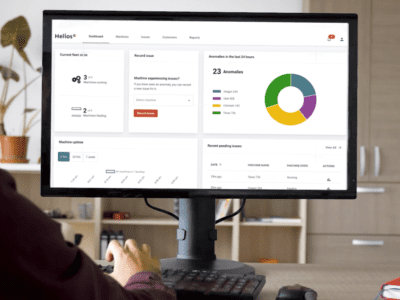Eighteen months ago our industry and employees were identified as “essential” and many suppliers and box plants are experiencing great success and growth as a result. However, as demand continues to rise the labor required to meet it has unfortunately decreased dramatically. This has been a movement for years now and the complexities around acquiring and retaining talent has only compounded the need for most all companies to look for greater automation solutions. The shortage of available labor to build machinery and operate corrugators and converting equipment is something I have not witnessed in my thirty-plus year career. This sentiment has been confirmed in conversations with fellow AICC general and associate members who’ve also said there seems to be no end in sight.
In discussion with those managing box plants, one member organization shared they had 300 job openings in their plants across the country. Another individual in the Pacific Northwest shared with me last week that they are experiencing an average of 26 call-outs a day at their plant — not to mention the shortage of 20-plus needed personnel to meet their current production needs. It’s already difficult to schedule production with a shortage of people, additional call-outs make it almost impossible to plan for and causes greater disruption.
Most suppliers and box plant owners were already experiencing challenges pre-Covid to find individuals willing to work in the physical demands of a box plant. When coupled with the fears of the pandemic and additional government incentives, the difficulties have only enhanced. It’s no longer a matter of having an already small talent pool, it’s an industry-wide shortage of interest from the available labor force. Many states have tried to incentivize workers by cutting additional federal funding but this strategy has run into its own legal challenges. In Maryland recently, a Baltimore judged blocked Governor Hogan’s initiative to end the enhanced federal benefit of $300 per week.
Pressures on congress to mandate higher Minimal Wage is also forcing manufacturers’ to look at automation to reduce additional labor costs. Other industry leaders have also shared with me the first quarter of 2021 was extremely difficult to manage production requirements due to state benefits like the CA 2021 Covid-19 Supplemental Paid Sick Leave benefits which provided two weeks of pay for those caring for a family member who had Covid. The management of that process was cumbersome and further caused an abundance of unexpected call-outs.
That said, there are still many box plants and supplier operations that maintain dedicated and skilled employees throughout box plants and supplier operations worldwide. Those willing to stay though have demanded greater work-life balance. In many instances they would prefer to keep their forty hours a week and not take on overtime work at enhanced pay. The work/life balance is much more important to them than the additional money. I am not saying they do not “have it right”, but it is something we all have to manage as we are already short staffed. Similarly, a customer visiting our operation this past week said employees have no problem walking off the job if they have a personal obligation that is conflicting with work because they know they can go down the street and get a new job with a signing bonus.
This has ultimately led for many in our industry to relax everything from work-from-home policies to pre-employment drug screening and modified background checks to get enough bodies in to operate equipment to meet demand. One AICC associate member out of Los Angeles, CA said his company had greater success bringing in talent after posting their open positions in Spanish to attract skilled workers who might have otherwise not applied due to language barriers. This strategy worked well for them due to their geographic location but it was also made possible because they had internal programs to support ESL (English as a Second Language) training and management tools.
However, while the human talent pool shrinks, automation has taken rise. Operating 24/7/365, automation has allowed for the literal industry engines to continue — not only meeting demand but exceeding the scales of human-based production. The future of our industry looks to be reliant on the few with the power of many….robots.
Greg Jones is the Executive Vice President of SUN Automation Group. With a pulse on corrugated market demands, Jones is Vice Chairman of AICC’s associate board. Prior to joining SUN in 2012, he spent over 15 years in the manufacturing and packaging sector focused on delivering equipment and material load containment solutions to clients across various sectors.
As seen in AICC BoxScore, September/October Issue 2021


 Increasing Uptime – OEM OPERATOR TRAINING: The forgotten key to optimizing machine performance
Increasing Uptime – OEM OPERATOR TRAINING: The forgotten key to optimizing machine performance